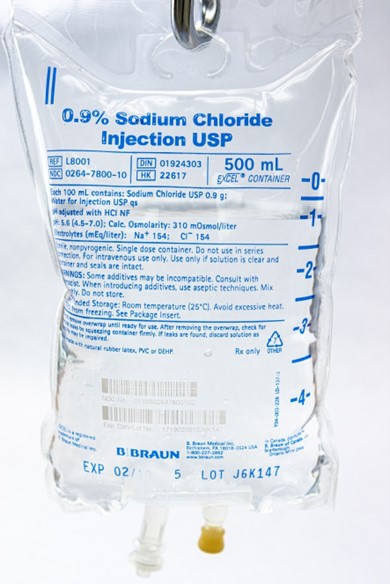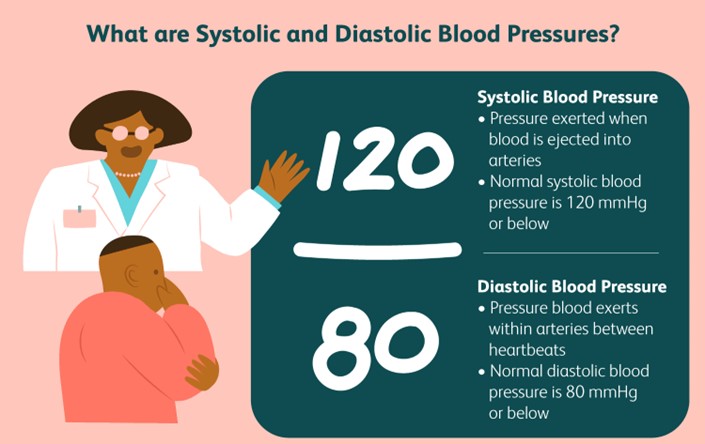A nurse in an emergency department is caring for a client who has diabetic ketoacidosis (DKA) and a blood glucose level of 925 mg/dL. The nurse should anticipate which of the following prescriptions from the provider?
Oral hypoglycemic medications
0.9% sodium chloride IV bolus
Dextrose 5% in 0.45% sodium chloride
Glucocorticoid medications
The Correct Answer is B
Choice A Reason: This choice is incorrect because oral hypoglycemic medications are not effective for treating DKA. Oral hypoglycemic medications are drugs that lower the blood glucose level by stimulating insulin secretion or increasing insulin sensitivity. They may be used for clients who have type 2 diabetes mellitus, but they do not work for clients who have type 1 diabetes mellitus or DKA.
Choice B Reason: This choice is correct because 0.9% sodium chloride IV bolus is an effective treatment for DKA. 0.9% sodium chloride is an isotonic solution that contains the same concentration of solutes as blood plasma. It may be used for clients who have fluid loss, dehydration, or shock. In DKA, the body breaks down fat for energy due to insulin deficiency or resistance, resulting in high levels of ketones and acids in the blood. This causes osmotic diuresis, dehydration, electrolyte imbalance, and metabolic acidosis. Therefore, administering 0.9% sodium chloride IV bolus can help to restore fluid volume and correct electrolyte imbalance.
Choice C Reason: This choice is incorrect because dextrose 5% in 0.45% sodium chloride is not indicated for treating DKA. Dextrose 5% in 0.45% sodium chloride is a hypertonic solution that contains more solutes than blood plasma. It may be used for clients who have hyponatremia, cerebral edema, or malnutrition, but it can worsen hyperglycemia and osmotic diuresis in clients who have DKA.
Choice D Reason: This choice is incorrect because glucocorticoid medications are not indicated for treating DKA. Glucocorticoid medications are drugs that mimic the effects of cortisol, a hormone that regulates stress response and inflammation. They may be used for clients who have allergic reactions, asthma, or autoimmune diseases, but they can increase blood glucose levels and inhibit insulin action in clients who have DKA.

Nursing Test Bank
Naxlex Comprehensive Predictor Exams
Related Questions
Correct Answer is ["125"]
Explanation
Step 1: Determine the total time required to infuse 40 mEq at a rate of 10 mEq/hr.
40 mEq ÷ 10 mEq/hr = 4 hours
Result: 4 hours
Step 2: Determine the infusion rate in mL/hr.
500 mL ÷ 4 hours = 125 mL/hr
Result: 125 mL/hr
The nurse should set the IV pump to deliver 125 mL/hr.
Correct Answer is A
Explanation
Choice A Reason: This is correct because dopamine is a vasopressor that increases the contractility and stroke volume of the heart, which results in an increased systolic blood pressure.
Choice B Reason: This is incorrect because dopamine can cause tachycardia as a side effect, but this does not indicate a therapeutic effect. An increased radial heart rate can also indicate other conditions, such as anxiety, fever, or dehydration.
Choice C Reason: This is incorrect because dopamine does not reduce cardiac output, but rather increases it by improving the pumping function of the heart.
Choice D Reason: This is incorrect because dopamine does not reduce urine output, but rather increases it by stimulating the renal blood vessels and enhancing renal perfusion.

Whether you are a student looking to ace your exams or a practicing nurse seeking to enhance your expertise , our nursing education contents will empower you with the confidence and competence to make a difference in the lives of patients and become a respected leader in the healthcare field.
Visit Naxlex, invest in your future and unlock endless possibilities with our unparalleled nursing education contents today
Report Wrong Answer on the Current Question
Do you disagree with the answer? If yes, what is your expected answer? Explain.
Kindly be descriptive with the issue you are facing.
